- Home
- Chris Wooding
The Fade kj-2 Page 11
The Fade kj-2 Read online
Page 11
If I die now, I'll never see my son again. I surface from a dream of knives into a state of suspicious clear-mindedness. My body aches but my thoughts feel like mine again. It's night outside my shelter, and the mist basin is raucous with sounds of life. Something enormous and wet slurps through the fungal underbrush beyond the layer of vines that protect me. A small crab, its shell polished as a mirror, is sidling through my den, segmented eyes watching me. It's cool and dark, and a hissing wind scours the land.
Feyn is sitting cross-legged at my feet, listening to the cacophony outside. He turns and looks at me, sensing me wake.
'I feel better,' I say, quietly.
He shakes his head. 'It is how it happens. The worst is coming.'
My momentary hope collapses. 'What's the worst?'
'My people call it… the translation is ''Shadow Death''.'
I don't much like the sound of that.
'Long in the past, we thought we could beat the sickness by facing it,' he continues. 'Many went out into the sun, to test themselves. Many died. But those who did not die, they became changed.' He pokes the steadily approaching crab with a stick of petrified lichen-tree and it scuttles away from him. 'Even now, some want to test themselves. Some take the risk, to make Shadow Death.'
'You were exposed,' I say. 'Out there. You caught the sun too.'
He shakes his head. 'a'Sura'Sao have skin that protects us, like the animals who walk in the day. We can stand in the light for a short time. It depends which sun, what time of day, many things. One sun is stronger than the other.'
I sigh, and relax a little. That news relieves me of a tension I didn't realise I had inside me. I manage a smile. If I die now, at least I did this. At least I got him out.
'The ones who make Shadow Death and survive are stripped of all things,' he says. 'They are made new.'
'How?'
'It is in their eyes and thoughts, and in the things they speak. They have been to the end and returned. Only Shadow Death can do this.'
'How long will it be?'
He brushes his hand through my lank and stinking hair. 'Soon.'
And yet I feel better than I did before, as if I was already on my way back. A cruel deception. I shift my weight and settle.
'Talk to me,' I say. It comes out more pleadingly than I intended. 'Talk to me until it comes.'
'What should I talk of?'
'You,' I say. 'Tell me about you.'
He seems uncomfortable about this, and I suddenly begin to understand why I know so little about him, even after all we've been through together.
'Our way is… not to speak of our own histories,' he says. 'We believe that now is the only importance. Others may tell our tales, but for us to speak of our own, it is… not polite. It is boastful.'
'There's nobody else to tell me,' I say, gently insistent. I need something to keep my mind off what's to come, but more than that, I want to know about this person that I've risked my life for, whom I've dragged from a Gurta prison for no sane or logical reason I can think of. I deserve that much. 'Will you do it? For me?'
He drops his eyes. 'I will tell you,' he says. 'But if you survive, you must never speak of my boastfulness.'
He's perfectly serious. I treat it with the gravity it deserves. 'I won't say a word.'
So he talks. He talks of being born into a coterie, which I learn is the best translation of their name for a clan or a group. He talks of the travelling life, of hunting and herding when the nights come. He talks of storing food for the retreat to the high caves during the Season of Days, when the suns are on opposite sides of Beyl and so Callespa is bathed in permanent light, except during the brief periods of halflight when the mother-planet shadows us. He talks of the ways they have come to live beneath the suns, and how they exist on the hostile skin of our moon.
Then, when he has evaded the issue long enough, he talks about himself. A quiet, shy child, living in the shadow of his brother. The elder sibling was a hunter, a fighter and explorer. Handsome, strong and capable, he attracted the admiration of the young people of the coterie. Feyn was slight and not inclined to physical pursuits, but he was fiercely bright and a voracious learner. He spent his time with the elder folk of the tribe, or listening to the debates of the Pathfinders. He tells me that the Pathfinders are an elected triumvirate who lead the coterie.
As he speaks, I begin to see a life of quiet alienation, a boy wise beyond his years who could not engage with his peers, even in the small world of the coterie where everyone knew everyone. He walked with the Loremaster – the coterie's teacher-of-wisdom – instead of hunting with the other boys or practising his crafts. Comfort came in learning, and in the company of adults who wouldn't mock him or force him into unwilling competition.
Books were a rare commodity in the travelling life, where portability was vital, and most knowledge was carried in the heads of the Loremasters, whose apprenticeship involved memory techniques that gave them Khaadu-like recall. They were living libraries. But occasionally books were found or traded with distant outposts, and made their way into circulation among the coteries of the SunChildren. The Loremaster of Feyn's coterie had one such book. An Eskaran novel called The Light In The High Tower.
Feyn's obsession with this strange language, its alphabet and structure, became all-consuming. He pestered the Loremaster to teach him what he knew of Eskaran, but was disappointed to find the Loremaster's knowledge woefully incomplete, for he had only learned a little from another Loremaster called Siaw. He had intended to decode the book, but he did not have enough of the language to make it possible. It was wasted on him.
In his early adolescence Feyn left his coterie and joined another, taking the book with him as a gift. SunChild coteries meet occasionally in great fairs during the Season Of Nights, he says, and it's not uncommon for members to swap groups. Some did it for the change, or to find new friends or partners, or to get away from someone they disliked. Feyn did it to travel with Siaw.
Under his tutelage, Feyn began training to be a Loremaster, and he learned Eskaran. Though Siaw's own knowledge was imperfect – picked up from sporadic contact with Eskaran traders on the fringes of society, the source of what few tales we have of the SunChildren – he knew enough to show Feyn how to read his book.
I've never heard of The Light In The High Tower. By Feyn's account it seems to be a cheap romantic novel, of the kind you might find circulating among the handmaidens in any aristocratic court. I don't have the heart to offer my opinion. To him, it's a stunning piece of literature, a window into a society he can only imagine. To me, it sounds like something I'd use to wedge a door open.
'I became excited by an idea which said: go underground,' he tells me. 'I wanted to go to this place, Bry Athka, where the book speaks of. They have a University, a great place of learning. That is true?'
'It's true. My son went to the military school there.'
'You have been to the University?'
'A few times,' I say, not mentioning that my longest visit was to murder a respected academic who was about to publish his treatise on the dangers of foreign conflict to a merchant society. Caracassa's enemies would have wielded it over the Turnward Claw Alliance for years to come if it reached general circulation. He'd been repeatedly warned, but he was too stubborn to listen. I wasn't proud of myself for killing an old man for what seemed such a small thing, but neither did I feel guilty. I was under lifedebt: I was Ledo's weapon. Conscience was a luxury I gave away when I skinmarked my cheek with the sign of a Bondswoman.
Then he tells me the story of a girl, who treated him kindly and whom he fell in love with, but who would not accept him in the end. Her heart was with the hunters, not a quiet Loremaster-in-training. Knowledge and learning did not keep a girl warm at night, or make her feel safe.
It was an achingly familiar story. I almost began to tell him how my son had gone through the same thing more than once, but I felt it would cheapen Feyn's experience, and by the way he spoke of this girl, the w
ounds were still fresh.
So he left that coterie and travelled alone for a time. It was a dangerous thing to do, but SunChildren sometimes took such journeys of self-reflection. Feyn felt he had to examine himself and decide if his life was on the right path.
'My sorrow drove me away,' he says. 'I felt I had no worth. What worth was it to read a book? What worth was it to know the words of a society I would never be with? Tradition had kept the a'Sura'Sao at a distance from the Eskarans. Our meetings with your people were brief, and in far places. So I decided I would meet with the Pathfinders of many coteries at our next gathering and persuade them that I should go to Eskara and learn your ways, and teach you of us.' His eyes come alive at the thought. 'I would go to the University at Bry Athka and return an explorer! Braver than any hunter!'
'You did this for a girl?'
'At first I thought that was true, but it was not for her. It was to be done for me.'
'What happened?'
'When I had made to decide, I travelled to meet a coterie I knew of. We travel certain routes, you understand? We leave markers and trails for a'Sura'Sao, who know how to read them. Our lands are full of secrets for our kind, hoards of food and equipment, buried sunsuits, maps to hidden places. It is necessary for us to help one another to survive. I could pick up their trail and follow.'
'But you never got there.'
'I could not catch them before… mmm… you call it ''big wind''?'
'Hurricane,' I say. I remember Reitha telling me about the storms that sometimes engulfed our moon, blanketing all the known lands and probably far beyond, laying waste to anything not hardy enough to stand up to them.
'Yes. It comes sometimes at a certain time of year. I took shelter in the caves, and I had many supplies, but it blew for seven days and it did not seem as if it would stop. So I began to think… now is the time I must go underground. Why should I ask permission? The Pathfinders might say no, and then my life is worthless.' He's fidgeting now, embarrassed by his impatience, ashamed.
'So I went underground. Gurta caught me. They took me to Farakza. I think they had never seen a SunChild, so they thought I was a… freak?' I nod as he looks to me for approval of the word. 'But the scholars know I was a SunChild. Otherwise, the chirurgeons would cut me up. So they try to learn my language, but it is not easy, and I think they forgot about me.'
'You were lucky,' I say.
'What is luck? This is twice time you said it.'
I'm about to reply, but suddenly it feels as if the world has plunged away from me. My head starts to pound, my body feels simultaneously lighter than air and heavy as lead. It feels like an attack, like poison flooding through me. Feyn sees it.
'It is beginning. The Shadow Death.'
I can feel the pain growing, rising, inexorable as the dawn that did this to me. I grab Feyn's hand and hold it tight.
'Don't leave me.'
'One way or another,' he says, 'you soon will be free.'
There's a stabbing like a rusty blade in my guts which drives the breath from me. All sense flees in the oncoming panic. I can't face what's coming. I crush his hand as if I could break the bones there, lessen the pain by sharing it. Feyn sits and watches me as my vision clouds and my body arches and delirium clamps icy fingers around my head.
I'm dying. Nothing can stop that now.
'Jai, I'm sorry…' I mutter through clenched teeth, and they're the last words I'm capable of saying before my throat begins to seize.
Of all the final thoughts I could have had, why an apology?
14
The cave mouth opens a short way up a barren mountainside. At the foot of the mountain is a great flat stretch of scarred yellow-brown rock, which terminates suddenly at the edge of a sheer cliff. Beyond it is a sunken basin, bordered on all sides by steep escarpments and distant peaks.
Mist hangs thick in the basin, broken by the caps of colossal fungi. Mycora. The Caracassa mansions are built into the roots of one of these, many thousandspans underground. They emerge from the drifting vapour like humped islands, or tower above it, swollen discs spreading outward from their massive stems. The jagged tips of sandstone pillars are dimly visible down there, hazy shadows in the whiteness.
And above it all, the sky. The terrible sky.
The horizon is dominated by the colossal presence of Beyl, the mother-planet, looming before us as we burst from the cave and begin to slide and scramble down the mountainside. She's a vast orb of black and purple and green, banded with darkly glowing clouds of poison, flickering with storms the size of continents. She dwarfs our little moon, so massive that she snuffs out the risen sun. The last vestiges of the sun's light are dwindling as her enormous bulk slides across it.
Halflight. The false night brought on when the mother-planet eclipses one or both of our suns. But it won't last long: further along the horizon, the sky is brightening, heralding the arrival of another sun. A second dawn is coming, and if we're not under cover by then, we'll not live to see another.
I can't think straight. My mind is a mess of conflicting fears and instincts, foremost of which is the sheer wrongness of being outside. The idea that there is nothing above me, an endless emptiness, forever… I feel like I might just float into the sky and disappear. My body is seizing up with fear. It senses the day, lurking in sullen abeyance. It knows how slender the window of night is. It knows what will happen if the sun catches us in the open.
Escape. It's all there is. It's all I can allow myself to consider. If I think about anything more than skidding down this treacherous mountain slope, I'll fall apart. My body is burning with exhaustion: our short rest has done little to redress the rigours of our flight from Farakza. The Gurta are behind us, promising death as surely as the suns. Only Feyn can deliver me. This is his world. I have to believe in him.
We reach the bottom of the slope as the Gurta emerge from the cave. They have the altitude to put us within the range of their bows, and though the distance should make it an impossible shot, I've faced enough Gurta archers to know that impossible doesn't apply.
'Feyn! Don't run straight! Zigzag!' I shout at him. He's a little way ahead of me, having taken the lead on the way down. He's heading for the mist basin, the only feature of the landscape within reach of a sprint. Eerie crackles and piping noises began to drift up from below: the first soloists of the night chorus, tricked by the eclipse.
He starts to jink left and right randomly, as do I. We lunge and brake and throw our weight in different directions. I'd feel ridiculous if I didn't know it was our only chance of avoiding their arrows; and moments later I'm proved right. A shaft fires past my ribs and misses me by inches. Three more clatter around us, but none as close as the first. The last one falls some way behind. We're gaining distance while they stand still and fire.
I risk a glance back. They've resumed the chase. I call to Feyn and he understands: he breaks into a straight sprint again, and I follow suit.
The wind is picking up, stirred by the drastic drop in temperature. The air is cool and bone-dry. The sky is filled with stars, uncountable stars, and stroked with feathery strands of bruise-coloured cloud. Beyl's skin prickles with auroras, phantom tentacles thrashing over her flank at the point where she swallowed the sun.
The flat shelf of land is bare and blasted, hard stone pounding my soles through my shoes. My vision has narrowed to a tunnel, and I keep Feyn square in its centre. He's racing towards the mist basin as if he intends to fling himself off the cliff when he reaches it. Maybe he will. Maybe it's better than the alternative.
Glid larvae are dispersing before us, absurdly peaceful, floating down from the breeding grounds on the mountaintops. They ride the switching winds, using their membranous hoods as parachutes, fat grub-like bodies curled beneath, heading for the sea of soupy mist.
I can't think about them. I can't think about anything. Hysteria is threatening and the moment I let it in it'll shatter me.
Feyn alters course. He's seen something. I try to s
pot it but I can't, so I simply follow. We're heading for a hump of rock on the lip of the basin. Nothing makes sense over the scream of my senses telling me to fall to my knees and dig at the earth with my hands, to get back underground. I can feel the impending dawn, the insidious rise of the second sun over the mountains, and I know how an animal must feel as it hides from the gaze of a predator. The terror of that blazing eye will surely kill me, even before its light does.
The arrow hits me with the force of a hammer, punching through my shoulder in a nova of agony. I manage to stagger a dozen more steps before my balance deserts me and I fall on my face. Shock starts to settle in but my training won't let it. Subconscious defences, built up over many years, dam the flood. Teeth gritted, I start to get up as another arrow skips across the stone to my left. What kind of range do these bastards have, anyway?
Then Feyn is there, pulling me up, and we run. The arrowhead is sticking out of the front of my shoulder and it grates against my collarbone with every step, but I can still feel my arm and I can flex my fingers. I want to be sick.
Ahead of us. A fissure in the earth, a split in the hump of rock on the edge of the mist basin escarpment. That's what we're running for.
The sky to our left has turned purple-blue, dazzlingly rich. The tips of the mountain peaks are limned in fiery brightness.
Another arrow skitters past us, falling short. They must know what we know. Because as I watch the world bleaching before the dawn, I realise that we aren't going to make it. And if we don't, they certainly won't.
We're still a hundredspan from the fissure when the edge of the second sun clears the mountaintops.
Sunrise.
The world goes white. An awful, seething white, tinged with a burning blue. Shadows are smashed into cracks and crevices. The rocks and pebbles at my feet are thrown into sudden and sharp relief, every detail branded on my vision even after I shut my eyes. And with the light comes a prickling heat on my skin, the deadly glow pushing against me, scouring, pummelling.

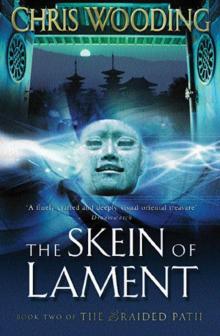 The Skein of Lament
The Skein of Lament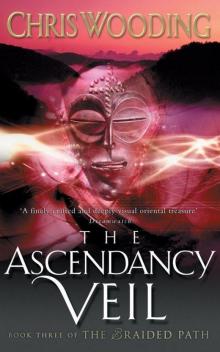 Braided Path 03 - The Ascendancy Veil
Braided Path 03 - The Ascendancy Veil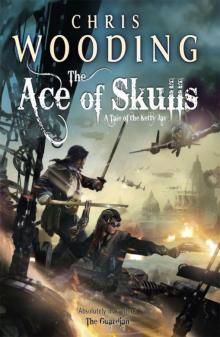 The Ace of Skulls
The Ace of Skulls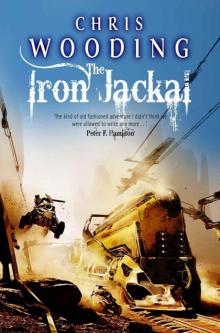 The Iron Jackal
The Iron Jackal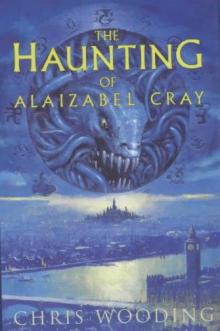 The Haunting of Alaizabel Cray
The Haunting of Alaizabel Cray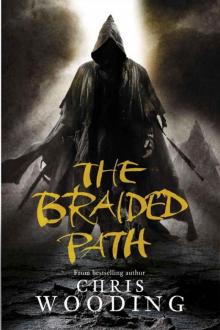 The Braided Path: The Weavers of Saramyr / the Skein of Lament / the Ascendancy Veil
The Braided Path: The Weavers of Saramyr / the Skein of Lament / the Ascendancy Veil Storm Thief
Storm Thief Silver
Silver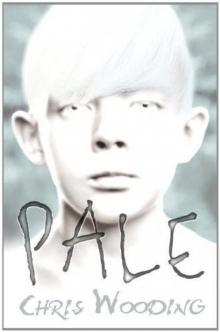 Pale
Pale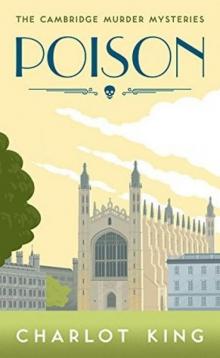 Poison
Poison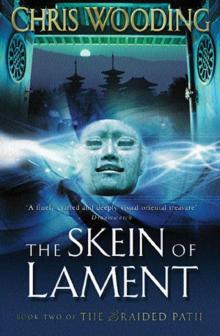 Braided Path 02 - The Skein Of Lament
Braided Path 02 - The Skein Of Lament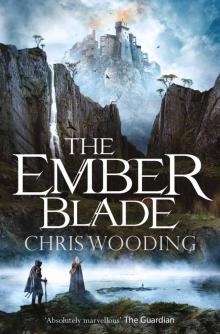 The Ember Blade
The Ember Blade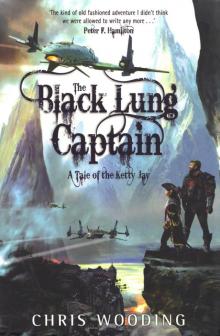 The Black Lung Captain
The Black Lung Captain Out of This World
Out of This World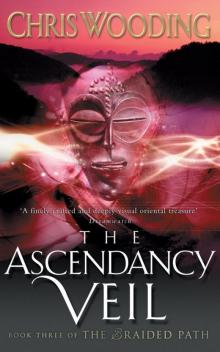 The Braided Path: Ascendancy Veil Bk. 3
The Braided Path: Ascendancy Veil Bk. 3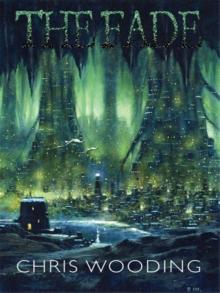 The Fade kj-2
The Fade kj-2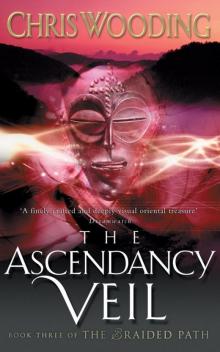 The Ascendancy Veil: Book Three of the Braided Path
The Ascendancy Veil: Book Three of the Braided Path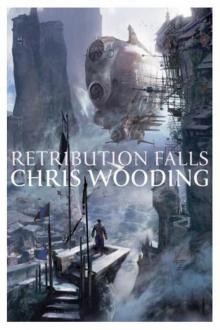 Retribution Falls totkj-1
Retribution Falls totkj-1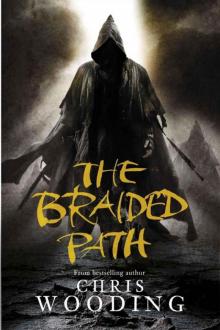 The Braided Path: The Weavers of Saramyr, The Skein of Lament and the Ascendancy Veil
The Braided Path: The Weavers of Saramyr, The Skein of Lament and the Ascendancy Veil Ketty Jay 04 - The Ace of Skulls
Ketty Jay 04 - The Ace of Skulls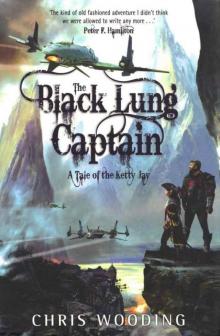 The Black Lung Captain totkj-2
The Black Lung Captain totkj-2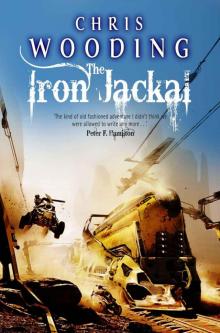 The Iron jackal totkj-3
The Iron jackal totkj-3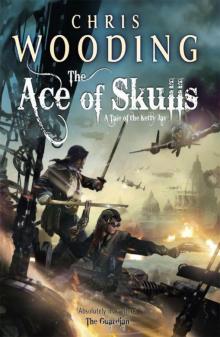 The Ace of Skulls totkj-4
The Ace of Skulls totkj-4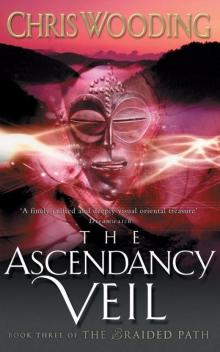 The ascendancy veil bp-3
The ascendancy veil bp-3